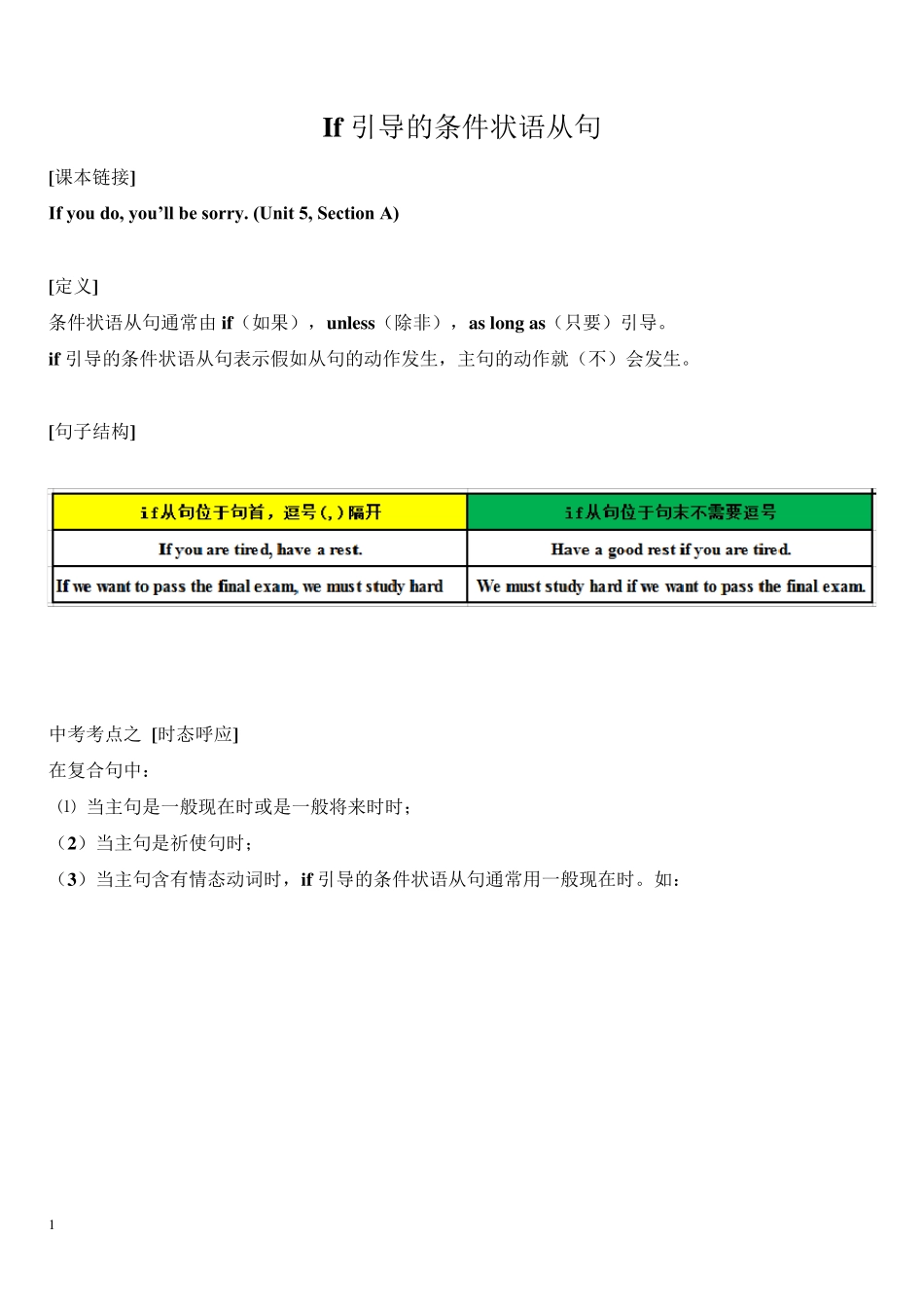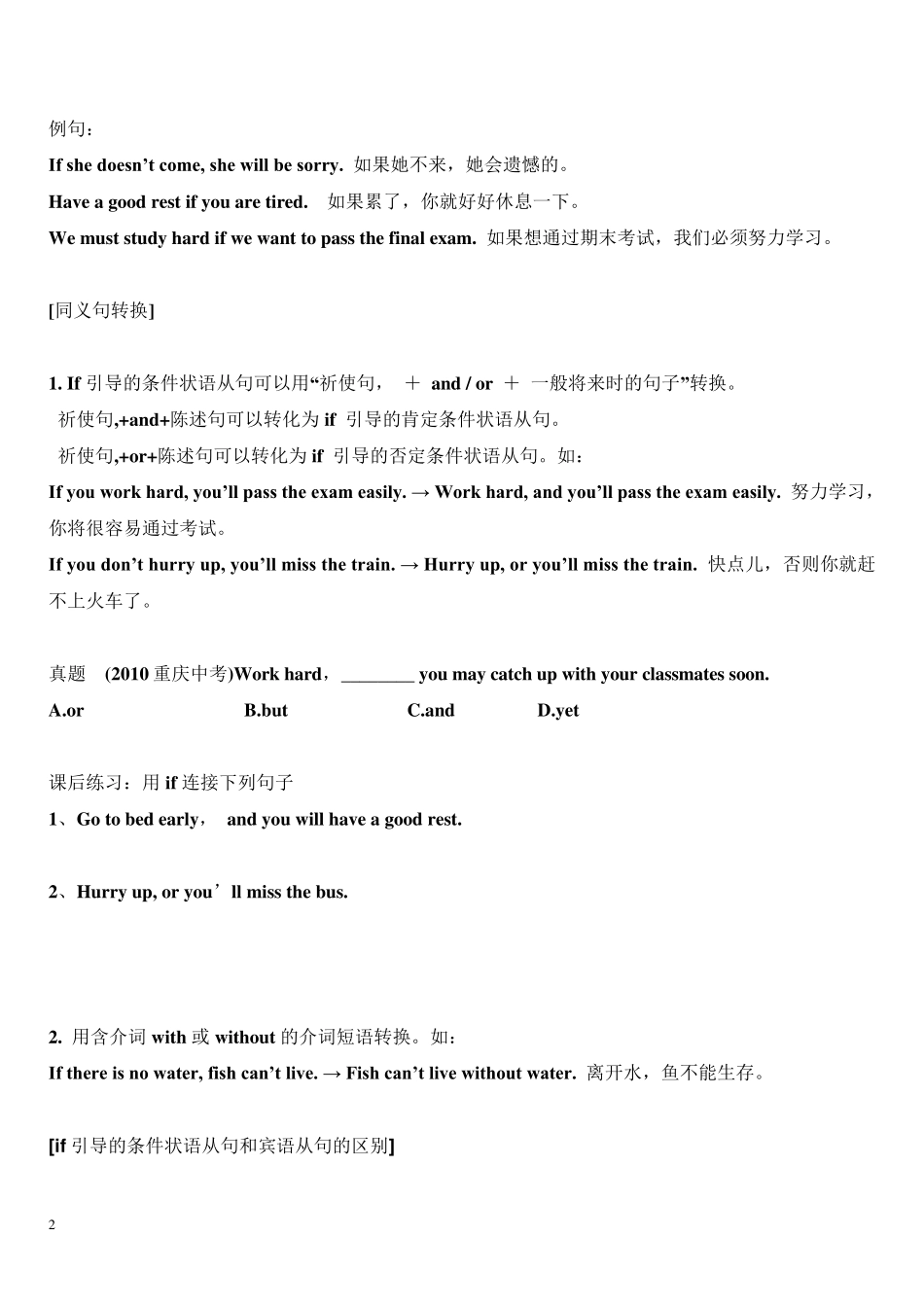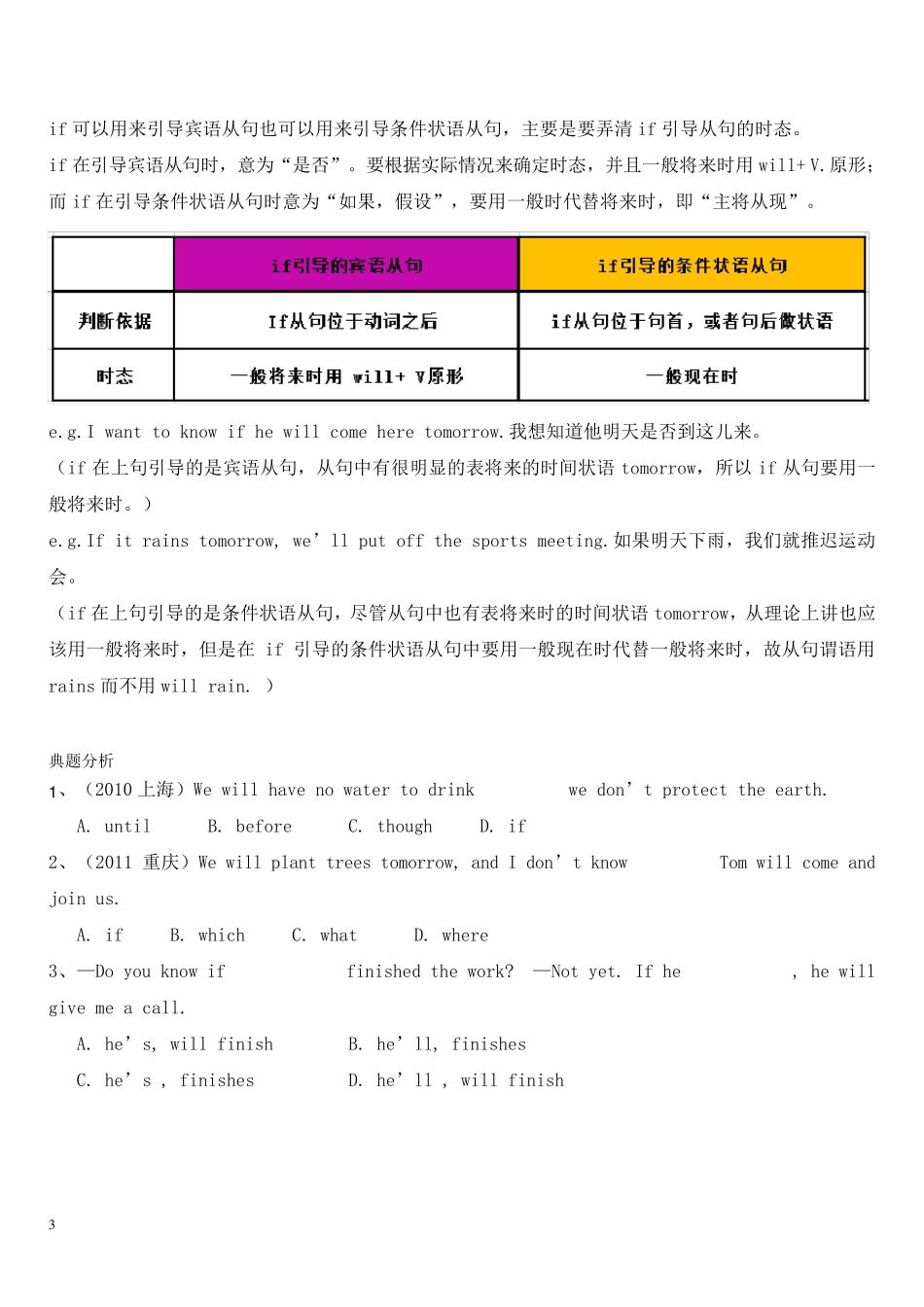1 If 引导的条件状语从句 [课本链接] If you do, you’ll be sorry. (Unit 5, Section A) [定义] 条件状语从句通常由if(如果),u nless(除非),as long as(只要)引导。 if 引导的条件状语从句表示假如从句的动作发生,主句的动作就(不)会发生。 [句子结构] 中考考点之 [时态呼应] 在复合句中: ⑴ 当主句是一般现在时或是一般将来时时; (2)当主句是祈使句时; (3)当主句含有情态动词时,if 引导的条件状语从句通常用一般现在时。如: 2 例句: If she doesn’t come, she will be sorry. 如果她不来,她会遗憾的。 Have a good rest if you are tired. 如果累了,你就好好休息一下。 We must study hard if we want to pass the final exam. 如果想通过期末考试,我们必须努力学习。 [同义句转换] 1. If 引导的条件状语从句可以用“祈使句, + and / or + 一般将来时的句子”转换。 祈使句,+and+陈述句可以转化为if 引导的肯定条件状语从句。 祈使句,+or+陈述句可以转化为if 引导的否定条件状语从句。如: If you work hard, you’ll pass the exam easily. → Work hard, and you’ll pass the exam easily. 努力学习,你将很容易通过考试。 If you don’t hurry up, you’ll miss the train. → Hurry up, or you’ll miss the train. 快点儿,否则你就赶不上火车了。 真题 (2010 重庆中考)Work hard,________ you may catch up with your classmates soon. A.or B.but C.and D.yet 课后练习:用if 连接下列句子 1、Go to bed early, and you will have a good rest. 2、Hurry up, or you’ll miss the bus. 2. 用含介词 with 或 without 的介词短语转换。如: If there is no water, fish can’t live. → Fish can’t live without water. 离开水,鱼不能生存。 [if 引导的条件状语从句和宾语从句的区别] 3 if 可以用来引导宾语从句也可以用来引导条件状语从句,主要是要弄清if 引导从句的时态。 if 在引导宾语从句时,意为“是否”。要根据实际情况来确定时态,并且一般将来时用will+ V.原形; 而if 在引导条件状语从句时意为“如果,假设”,要用一般时代替将来时,即“主将从现”。 e.g.I want to know if he will come...


